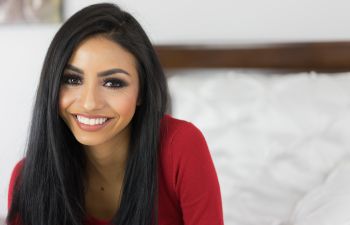
The sleep apnea stereotype is that of an older, heavyset male whose snoring rattles windows and sends his wife into the guest room to try to get some sleep. Although this picture fits for many sleep apnea patients, it is by no means the only representation. Women also suffer from sleep apnea and they, like men, are not always overweight. Nor do all sleep apnea sufferers snore.
Females are Underdiagnosed
A little over a quarter of the general adult population suffers from sleep apnea, according to the American Academy of Sleep Medicine. Most of these people are between the ages of 30 – 70 years old and men are twice as likely to have it as women. Unfortunately, even though women have the disorder half as much as men, men are eight times more likely to be diagnosed. That means many women are not getting the diagnosis, and therefore, missing the treatment they need.
Women will talk to their primary care physician about symptoms of sleep problems, but are less likely to speak with a sleep specialist. If the woman does not fit the preconceived notion of being very overweight, sleep apnea may not be considered.
Men and women do not always have the same symptoms. A woman’s symptoms may be more subtle than her male counterpart. She may have much lighter snoring and her breathing problems may be more subtle. Other symptoms that women experience are also symptoms of other conditions:
- Depression
- Fatigue
- Headaches
- Insomnia
- Lack of energy
- Mood disturbances
- Restless leg syndrome
In many cases, a woman is more likely to receive a prescription for an antidepressant than a referral for a sleep study. Also, men are less likely to observe their bed-partner’s sleep disturbances.
Women’s Risk Factors
There are risk factors of which you should be aware if you are a woman who experiences the above symptoms.
- The onset of sleep apnea increases as a woman transitions through menopause. Women are three times more likely to develop sleep apnea after menopause.
- Women who are between the age of 55 – 70 are 14% more likely to have severe sleep apnea.
- Obese women between the age of 55 – 70 are 31% more likely to have sleep apnea.
- Anxiety and depression often accompany sleep apnea in women.
- Women with a neck circumference greater than 16 inches are at risk.
- Poly-cystic ovarian syndrome can increase the risk of sleep apnea by 70%.
- Pregnancy can also increase the risk of sleep apnea.
Sleep apnea can leave you feeling lethargic and unrefreshed when you wake up. If you experience morning headaches and are tired most of the day, talk with a sleep specialist to find out if sleep apnea is to blame. Schedule an appointment with Atlanta Sleep Apnea Treatment Center and get back on the road to refreshing sleep.
Posted on behalf of
1820 The Exchange SE, #600
Atlanta, GA 30339
Phone: (678) 401-7615
Mon - Thu: 8:30 AM – 5:30 PM
Closed for lunch: 12:30 PM - 1:30 PM
